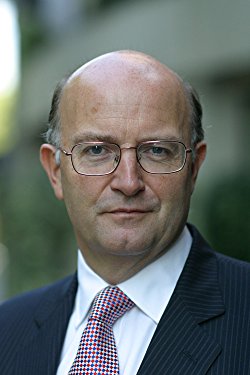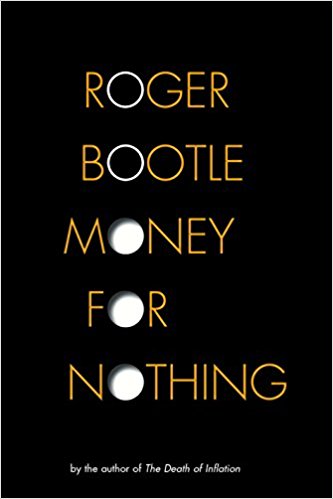Money for Nothing Summary
5 min read ⌚
 Real Wealth, Financial Fantasies and the Economy of the Future
Real Wealth, Financial Fantasies and the Economy of the Future
Creating real wealth and a successful country has always asked for hard work.
Who Should Read “Money for Nothing”? And Why?
Ten or so years ago, Roger Bootle accurately predicted an extended period of low inflation. Using this credibility, he writes about the bubbles the world economy is in the midst of. He explains the dot-com era and the bubble whose bursting created a problem not so long ago.
He continues describing the position the economy is in at present, naming the current trends as a real estate bubble. He argues that the stock-market gains and speculation markets are not a lasting way of creating wealth.
Conversely, investors who are interested in a pragmatic debate on the world economy will surely enjoy this book.
About Roger Bootle
 Roger Bootle is a Specialist Adviser to the House of Commons Treasury Committee, and an Honorary Fellow of the Institute of Actuaries.
Roger Bootle is a Specialist Adviser to the House of Commons Treasury Committee, and an Honorary Fellow of the Institute of Actuaries.
He was formerly Group Chief Economist of HSBC and, under the previous Conservative government, he was appointed one of the Chancellor’s panel of Independent Economic Advisers, the so-called “Wise Men’.
In 2012, Roger along with a team from Capital Economics won the Wolfson Prize, the second biggest prize in Economics after the Nobel. Right now he runs Capital Economics, which he founded in 1999 and is known as one of the City of London’s best-known economists.
“Money for Nothing Summary”
In recent years, the society has adopted a money-for-nothing mindset where investors get rich in a blink of an eye. This wealth is created on speculation-driven markets, operating in a world economy focused on intangibles.
Accordingly, goods are no longer the prime mover of the modern economy. But, after the dot-com economic mess in 2000, investors have come to realize that speculation driven markets are not stable. In fact, they could disappear in a split second, just the way they appeared.
It is a new paradigm, indeed, to try to gain riches by a simple rise in stock prices. But, the world must move away from that fantasy world of rapid reaches. The real value is rooted in a prosperous, productive society.
The history of the world economy is full of bubbles of inflated estimates. The stock and housing bubbles are just a modern embodiment of old principles. Bubbles go back as far as the 1630s when Dutch tulips were priced as much as a modest home.
Even though they had no actual value, people continued buying them led by the reasoning that they must be valuable since their price kept rising. The same thing happened not long ago.
In the dot-com era, when stock prices rocketed even though the companies had no profit and no solid business plans. The previous is just an example of how when expectations outrun value; the actual value is no longer a player in price-setting.
Nowadays, housing seems to be the new bubble. The same way that soaring predictions fueled the dot-com speculation market, sky-high expectations have pushed investors to embrace the housing bubble.
What was once stock-trading is now house-buying. According to the basics of economy, the rising demand and shortage of property are making prices increase. Some of the housing enthusiasts argue that property prices won’t drop since long-term market trends won’t affect short-term prices.
Contrary to their argument, Japan, Hong Kong, France, Australia, etc., have all witnessed plummeting property prices.
Developed countries all face the threat of falling prices. Inflation, which was once a real danger, has given its way to deflation, which may surface as a new menace to the corporate world.
If prices fall, most probably wages will follow. An extended period of deflation could destroy the housing market. The logic behind this is simple: if wages fall, mortgage holders will no longer be able to make their mortgage payments.
In the meantime, although the housing bubble is still striving, the world’s economy starts moving its attention towards knowledge. Biotechnology and software industries are progressively flourishing. This phenomenon is called the “intangible revolution”.
The prime valuable of these technologies is knowledge, which is a renewable resource with an endless supply. The knowledge revolution means that even if it comes to the destruction of institutions, new generations can restore society.
Countries that refuse to accept technological advancements cannot achieve prosperity. Indeed, states have to be careful what trends they follow, but at the same time, they have to keep pace with the newest developments. Otherwise, they won’t be able to escape economic ordeals.
Conversely to this trend of trading intangibles, some industries cannot get separated from the physical world. Such example is food production. But, other sectors are hugely e-commercialized. You can already download music, transfer payments electronically, purchase travel tickets and reserve accommodation online, etc.
Key Lessons from “Money for Nothing”
1. Get real and cut expenses
2. Be patient
3. Analyze your investment decision
Get real and cut expenses
Don’t ignore the effects of inflation and deflation. Calculate investment returns, adjusting the numbers to actual developments.
Be patient
Don’t fall for stories of rapid riches in different segments of speculation-driven markets. Even though those fortunes are possible, they are not as real as they seem. Pure trading, consisted of buying for the sake of reselling is just a short-term source of wealth. In the long run, these markets are bound to disappear.
Analyze your investment decision
Make sure that once you decide to invest, you do it for the right reasons. Study if the company offers something that is worth the investment. Is it providing superior goods or services that other venture capitalists haven’t discovered yet? Does it possess good management? Make sure that you don’t gamble with your money.
Like this summary? We’d Like to invite you to download our free 12 min app, for more amazing summaries and audiobooks.
“Money for Nothing” Quotes
Having too much information can leave you in the same position as having none. Share on X As land and materials have been falling in relative importance as a source of wealth and prosperity, so knowledge has been increasing. Share on X In the economy, as opposed to the fantasy world of financial markets, real investments do not bear fruit in a matter of weeks or even months. Share on X Americans, by and large, are a very religious people and they bring a religious fervor to the subject of making money. Share on X The world is at a critical juncture, poised between a surge in wealth and descent into outright slump. It could go either way. Share on XOur Critical Review
Roger continues to explain the knowledge-based economy and the future that awaits us.
Stock market enthusiasts won’t enjoy Bootle’s predictions. The deflation and the burst of the housing bubble have yet to take place.
Emir is the Head of Marketing at 12min. In his spare time, he loves to meditate and play soccer.


 Real Wealth, Financial Fantasies and the Economy of the Future
Real Wealth, Financial Fantasies and the Economy of the Future




